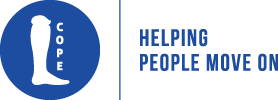FREQUENTLY ASKED QUESTIONS
WHAT IS COPE?
COPE is a local non-profit organisation created in 1997 by a group of non-governmental organisations, in partnership with the Lao Ministry of Health, to support the Centre for Medical Rehabilitation and help ensure that people with physical disabilities have local, affordable access to quality, nationally-managed rehabilitation services.
HOW MANY PEOPLE BENEFIT ANNUALLY FROM COPE SUPPORT?
Currently, COPE’s support enables the Centre for Medical Rehabilitation to provide approximately 1,200 prosthetic and orthotic devices annually to people living with disabilities, indirectly benefitting a much larger group of people including their families and local communities.
In 2017, COPE expects the number of people receiving prosthetic and orthotic devices and services to increase to at least 1,500 through service delivery at 5 fixed-site rehabilitation centres as well as through CMR-COPE Connect mobile clinic teams in remote and rural areas of Laos. In addition to the people with disabilities and their families, COPE’s action also benefits professionals working for the Physical Rehabilitation Centres who improve their professional skills through regular training.
DOES COPE ONLY SUPPORT UXO SURVIVORS?
COPE supports any person requiring prosthetic and orthotic devices and related rehabilitation services regardless of the cause of disability. On average, one third of those receiving a prosthetic device with COPE support are UXO survivors with another third being road traffic accident survivors. The other causes of disability may be congenital or through industrial or other types of accidents.
WHAT IS COPE’S ANNUAL BUDGET?
On average, COPE delivers its core work with a budget of USD1 million. Core work includes: training programmes for Rehabilitation Centre staff; managing of a Quality Standards programme for prostheses and orthoses in Laos; procuring the material and maintaining the equipment necessary to fabricate orthotic and prosthetic devices; patient costs including food and transport to enable patients to access services; COPE operating costs (admin and finance, procurement, monitoring and evaluation, technical support and Visitor Centre).
HOW IS COPE FUNDED?
COPE raises funds through international cooperation programmes, private foundations, and private individual donors. The COPE Visitor Centre is also a channel of funds generated through sales at COPE Gift Shop, Karma Café, and donations received online or at the centre itself.
HOW DOES MY DONATION HELP?
Your donation contributes to COPE funds which enable over 1,200 people with disabilities to access life-changing mobility-related rehabilitation services every year.
The cost of providing a prosthetic and orthotic device to patients varies greatly depending on the complexity and material necessary to fabricate the device. As COPE contributes to transport and daily food costs for patients attending services, the distance that patients have to travel to reach Rehabilitation Centres and their length of stay at the centre to receive services also affect patient costs. COPE also supports carers to accompany patients.
Supporting patient costs helps to reduce barriers to accessing services, especially for many patients who are subsistence farmers or who live in remote locations and would ordinarily not attend services.
Below is an average of the cost paid by COPE for people to receive the following devices:
- Five-day food allowance for one person: USD 20
- Lower leg and foot prosthesis for one person = USD 220
- Above knee and foot prosthesis for one person = USD 350
- Lower arm and hand prosthesis for one person = USD 170
- Upper arm and hand prosthesis for one person = USD 240
- Child clubfoot treatment for one person = USD 320
- Children’s wheelchair with supportive seating: USD 320
HOW CAN I HELP?
You can help by supporting us financially, organising fundraising events for us (click here for more information), or simply telling people about COPE.
ARE THERE VOLUNTEERING OPPORTUNITIES AT COPE?
COPE is currently not in a position to accept volunteers.
